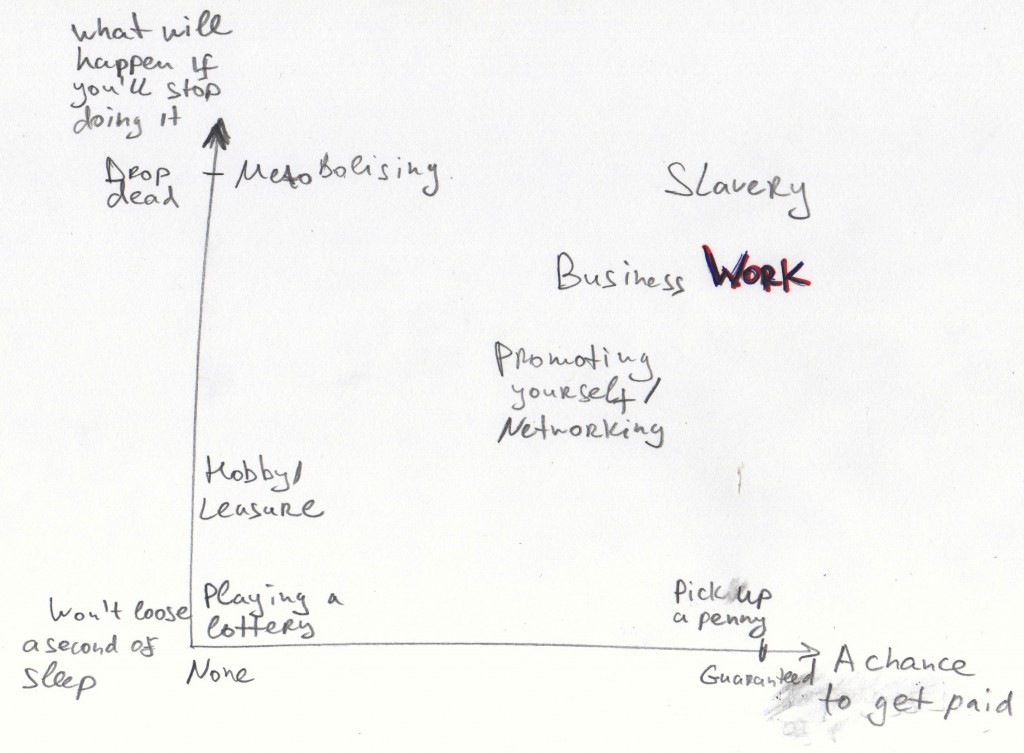From Wikipedia:
The Pareto principle (also known as the 80–20 rule, the law of the vital few, and the principle of factor sparsity) states that, for many events, roughly 80% of the effects come from 20% of the causes
I saw couple of articles which mention Pareto principle in the context that you should keep (continue doing) just 20% of activities and still you will get 80% of results.
Two important notes on the pareto priciple :
1. It it works only if events are independent.
2. It works only if resulting effect is measurable.
As example, some hypothetical software engineer have following activities:
– develop software
– research
– discuss what needs to be done
– break down complex tasks to simple tasks
– setting up build envinronment
– defining practices
– mentoring junior developers
In the case, if I will eliminate everything what doesn’t produce a product directly than most likely it will cause:
a) a jump in what we measure (as example lines of code)
b) enormous overall decrease in company productivity
P.S. I am all for elimination of unproductive tasks. However, I am against elimination of 80% tasks just for the sake of elimination.
And couple of interesting links:
– Setting up Jenkins on Amazon EC2


